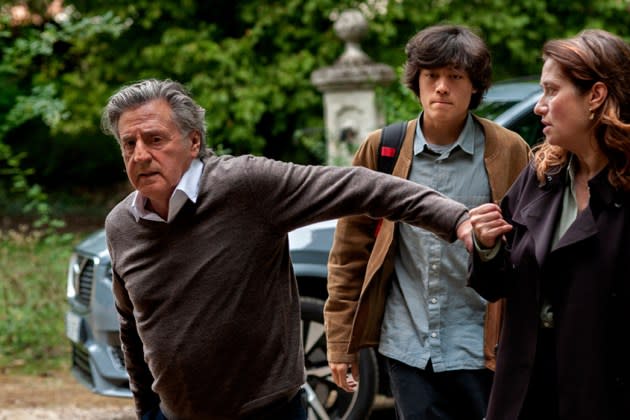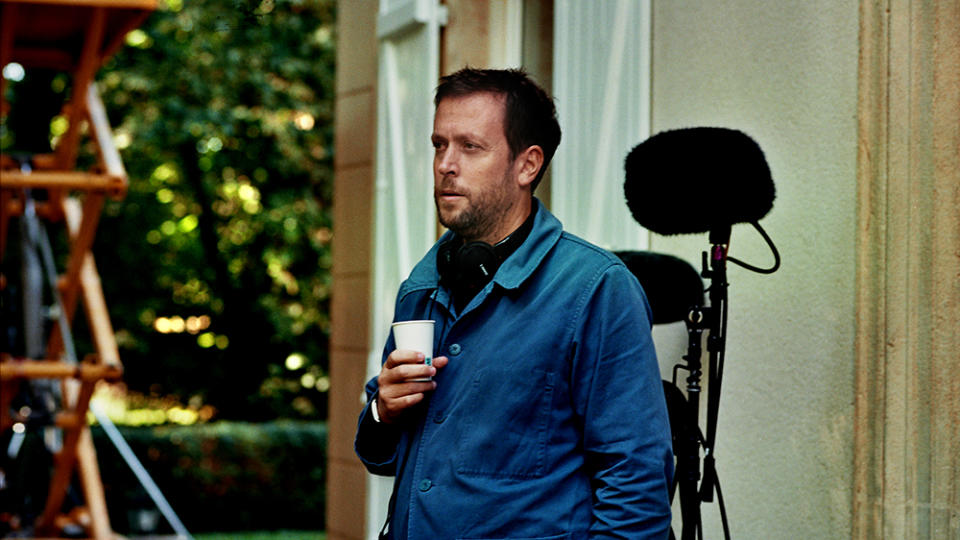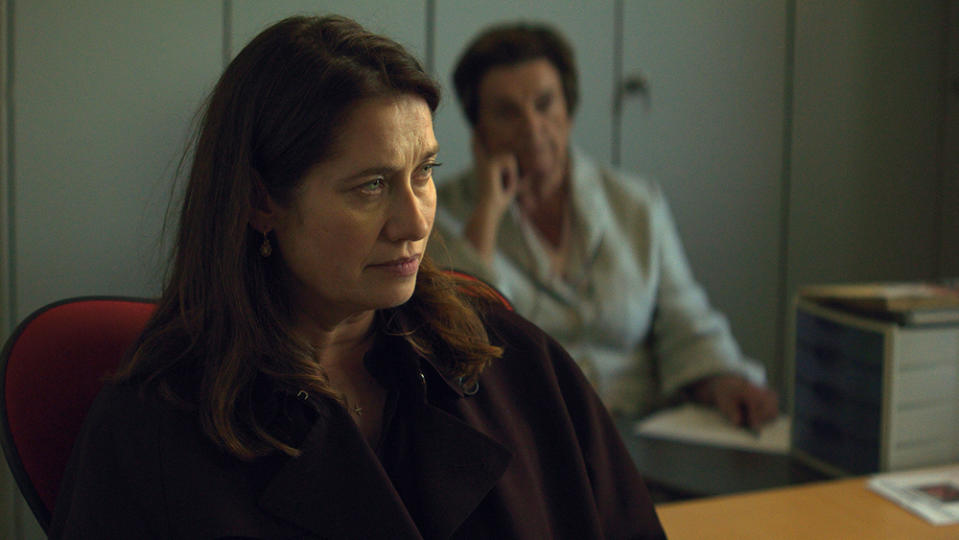Joachim Lafosse Speaks Out About Abuse in ‘A Silence,’ and So Should You: ‘I Also Refused to See Myself as a Victim’
- Oops!Something went wrong.Please try again later.
- Oops!Something went wrong.Please try again later.

Belgian director Joachim Lafosse is done being silent.
Just like the family in his latest film “A Silence,” inspired by the real-life case of Victor Hissel: a former lawyer for two victims of killer Marc Dutroux, ultimately charged with possession of child pornography.
More from Variety
'Great Absence' Review: A Son Discovers His Father in a Deft, Complex, Wrenching Dementia Drama
San Sebastian Native Jaione Camborda's 'The Rye Horn' Wins Top Prize at San Sebastian Film Festival
“To me, it’s not a dark story, because they do start to talk,” he says about the characters played by Emmanuelle Devos and newcomer Matthieu Galoux, slowly digging up the long-buried sins of their husband and father (Daniel Auteuil).
“Astrid and her children decide to step out of that criminal environment. With this film, I want to show how people can be violated by something like that, how difficult it is to shake off that shame and guilt. It’s difficult, but I think it’s possible.”
He also had to learn how to speak up, he says.
“In 2008, I made ‘Private Lessons.’ I didn’t say that at the time, but it’s my story. A true story,” he says. In the film, a teenage boy is taken advantage of by three adults, initially pretending to help him.
“With my mother, we haven’t spoken for years, and then she called me. She was crying. When I first made that film, her friend told her not to watch it. When she finally did, she asked if I wanted to press charges. I heard myself say: ‘I don’t have the courage’.”
The question of consent is very much on Lafosse’s mind.
“I’ve heard people say that what happens to that boy [in ‘Private Lessons’] is not ‘that bad.’ That he accepted it, that it served him in some way. But I show how an adolescent can be manipulated by adults. I also refused to see myself as a victim, but I didn’t have a chance to say ‘no.’ I was only 16 years old.”
Which is why films like Catherine Breillat’s “Last Summer,” about a stepmother pursuing an affair with her teenage stepson – a remake of Denmark’s “Queen of Hearts” – can be harmful, he notes.

“Some French auteurs still admire these ‘ambiguous’ relationships between older people and teens. When it premiered, some said: ‘Oh, what a wonderful story.’ It’s not – it’s portraying a crime, just like Nabokov’s ‘Lolita,’” underlines Lafosse.
“We see this woman, with all her money and power, taking advantage of her husband’s son and yet no one in Cannes calls it incestual. Instead, Breillat herself said it was about ‘desire and love.’ We just don’t learn! There is still work to do, clearly, and we have to do it to protect minors and adolescents.”
In “A Silence,” he didn’t want to focus on the crime, however. He wanted to focus on those affected by it.
“Astrid is a victim as well. Not a victim of that act of violence, but a victim nevertheless. Everyone is poisoned by it,” he says.
“If you find out that your own husband committed such an act, you are left speechless. It’s something that’s just impossible to comprehend. But if you say nothing, and wait, you become complicit as well.”
A co-production by Stenola Productions, Samsa Film, Les Films du Losange and Prime Time, it was produced by Anton Iffland-Stettner, Eva Kuperman, Jani Thiltges, Régine Vial, Alexis Dantec and Antonino Lombardo. Les Films du Losange is handling sales.
Lafosse needed to “keep things simple” this time, also visually. “My next, with [‘Saint Omer’s’ star] Guslagie Malanda, will be full of life,” he assures – making sure that the perpetrator appears human as well.
“I was so glad that someone like Daniel accepted to play this guy, because to many, that lawyer was a hero. People liked him, he spoke at the funerals of the victims, bringing everyone to tears. In the film, he is successful, respected and nice to his children. It’s a perfect mask.”
A mask his family now needs to peel off.
“Ever since #MeToo, and I actually think it’s real progress, we have been able to admit that ‘monsters’ can be found in our own families. That we can be monsters. They are not some mythical wolves, hiding away in a forest. We are starting to accept these truths and the truth about our own silence,” he adds. But it’s a process that takes time.
“These days, there are people who judge those who don’t speak up and I find it dangerous.” “At the end of [Danish Dogme 95 film about child abuse] ‘The Celebration,’ you have a note. You learn what really happened, you have proof. In real life, there is no note,” admits Lafosse, also mentioning Maria Schrader’s drama “She Said” about the Harvey Weinstein case.
“In that film, you see how word after word, act of solidarity after act of solidarity start to change things. For the last 25 years, to understand what really happened to me, I’ve had therapy three times a week. I know how hard it is to find the right words. But if the artists don’t speak up, who will?”

Best of Variety
Sign up for Variety’s Newsletter. For the latest news, follow us on Facebook, Twitter, and Instagram.

